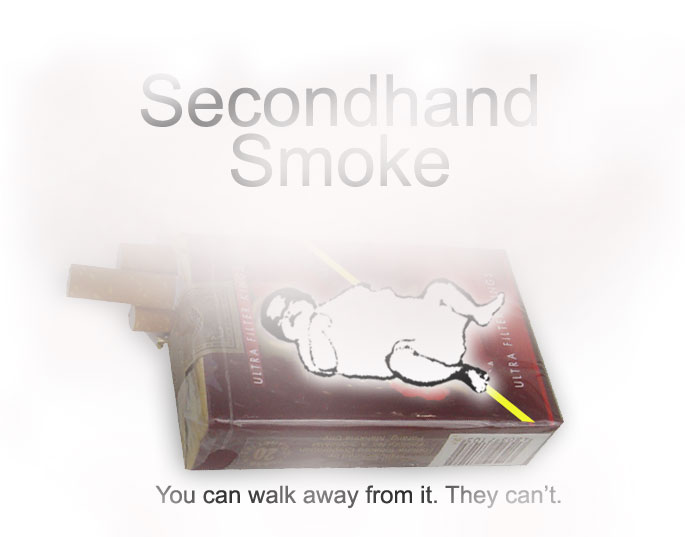





|
A comprehensive report from the US surgeon general warns that secondhand smoke causes premature deaths and disease in children and adults who don't smoke. Accumulating evidence shows links between involuntary smoking and its harmful cardiovascular, respiratory and reproductive effects. In nonsmokers, secondhand smoke increases the risks of developing heart disease by 25-30% and lung cancer by 20-30%. The home - instead of the work place - is the primary source of secondhand smoke, placing children at greater risks for sudden infant death syndrome, asthma and acute respiratory problems. Despite the increasing perimeters of no-smoking zones, nearly half of all non-smoking Americans are still exposed. Alas, cotinine, the biologic marker for secondhand exposure, is more than twice those of adult nosmokers. Estimated annual deaths from secondhand smoke: lung cancer, 3,400; cardiac-related, 46,000; and sudden infant death, 430. From the toxic miasma of secondhand smoke, more than 50 carcinogens have been identified; and in the urine, increased levels of metabolites of tobacoo-specific lung carcinogen NNK, or 4-(methylnitrosamino)-1-(3-pyridyl)-1-butanone. Nicotine easily crosses the placental barrier at low levels. with raging effects on the developing fetal systems. A causal link between secondhand smoking and breast cancer is suggestive, but not sufficient; as is the link with stroke or atherosclerosis, asthma, COPD. In women, smoking and second-hand exposure resulted annually in about 24,000 to 71,000 low-birth-weights and premature deliveries, about 200,000 episodes of childhood asthma, about 150,000 to 300,000 cases of lower respiratory illnesses, and about 780,000 cases of ear infections. Childhood exposure to secondhand smoke also linked to lower levels of lung function. Solution |
In The News |
| Sources, Links and Suggested Readings |
| Secondhand Smoke Fact Sheet / American Lung Association |
| Secondhand Smoke / CDC |
| Internal Medicine News. April 1, 2006 / www.internalmedicinenews.com |